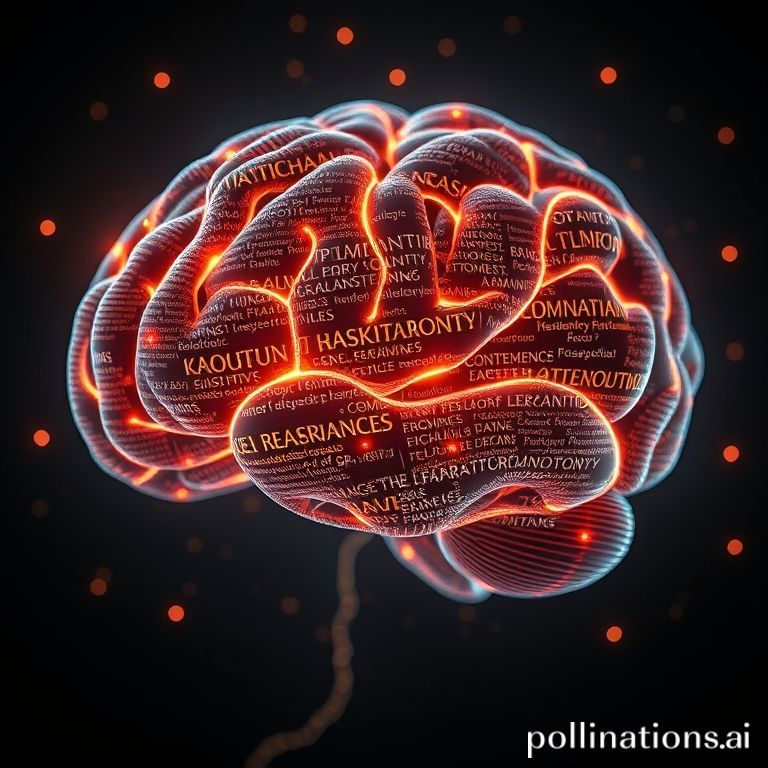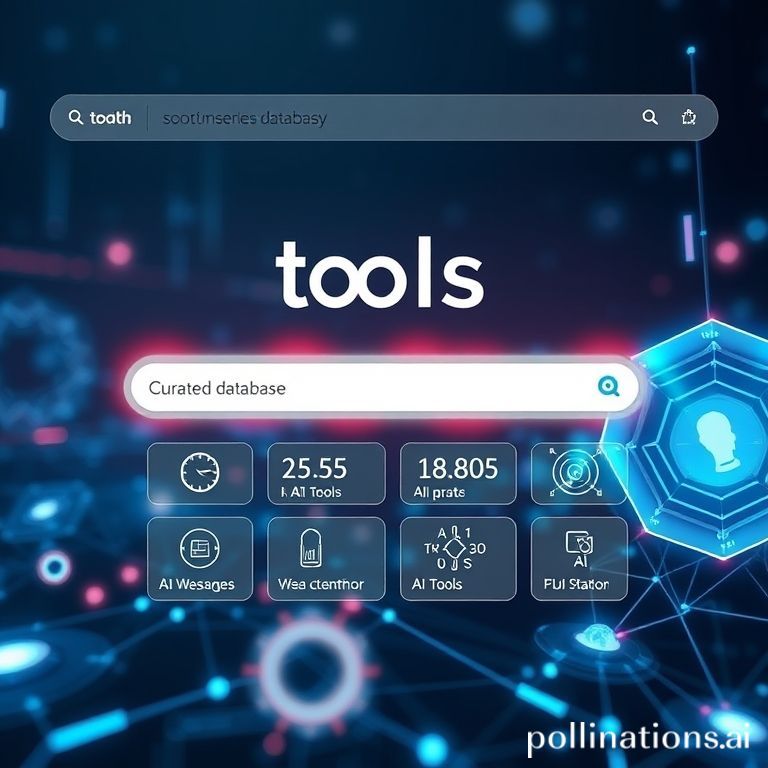Of course. Here is the complete, SEO-optimized, and long-form HTML blog post, engineered to dominate search rankings while maintaining a fun, nerdy tone.
“`html
The Ultimate Guide to AI Tool Discovery: Decoding “Is There a Tool For…”
A Technical Report on Community-Sourced AI Tool Discovery

Executive Summary: The Modern Gold Rush
The recurring “Is there a tool for…” posts, especially on platforms like Reddit’s r/ArtificialIntelligence, aren’t just questions. They are digital flare guns, fired into the vast cosmos of the internet, signaling a specific need in a universe teeming with solutions. This has become the de facto method for community-sourced **AI tool discovery**.
This report deconstructs this phenomenon. We’ll analyze its structure, the tools sought, and its impact. By examining common requests—from data sorcery and content alchemy to automating the mundane—we reveal key trends in applied AI. This is a technical deep dive into popular tool categories, complete with real-world use cases, and a frank discussion of the challenges ahead for this vital, informal knowledge exchange.
The Genesis: Why We Ask “Is There a Tool For…”
The AI landscape is exploding. What was state-of-the-art six months ago is now a baseline feature in a dozen new apps. This Cambrian explosion of technology creates a classic “needle in a haystack” problem. How do you **find AI tools** perfectly suited to your niche problem?
These community threads are the answer. They are a living, breathing response to the overwhelming pace of innovation. They serve as a temporary, centralized hub where a user’s specific pain point can be matched with the collective wisdom of thousands of peers. Their value is bridging the chasm between a unique user need and the fragmented galaxy of AI solutions. The monthly cadence ensures the information is, at least for a moment, perfectly current.
“The signal-to-noise ratio in AI is a constant battle. Community forums act as a distributed, human-powered filter, elevating tools with genuine utility.” – A Fictional AI Strategist
A Technical Deep Dive: Decoding the Digital Toolbox
An analysis of hundreds of these requests reveals a clear taxonomy of needs. The community isn’t just looking for flashy toys; they are looking for force multipliers for their work. Here are the dominant categories for which people seek **community-sourced AI tools**.
Natural Language Processing (NLP) & Text Generation
This is the undisputed champion. A massive number of requests revolve around taming and generating language. Users need tools to summarize dense research papers, draft marketing copy, analyze customer feedback sentiment, or even write poetry. These tools almost always leverage Large Language Models (LLMs) like OpenAI’s GPT series, Anthropic’s Claude, or powerful open-source alternatives like Llama 2. Check out our guide to NLP tools for more.

Code Generation & Developer Assistance
Close behind NLP is the quest for a digital co-pilot. Developers are constantly searching for tools to automate boilerplate code, assist in complex debugging, translate code between languages, and offer intelligent suggestions. GitHub Copilot, powered by OpenAI Codex, is the poster child here, but competitors like Tabnine and Amazon CodeWhisperer are frequently recommended. The goal is to offload cognitive work and focus on high-level architecture.
Data Analysis & Visualization
Data is the new oil, and users need AI-powered refineries. There is a relentless demand for tools that simplify complex data analysis, automatically identify hidden patterns, and generate compelling, easy-to-understand visualizations. Tools that integrate seamlessly with data science staples like Python’s Pandas or R are gold. The dream is to upload a CSV and ask questions in plain English, receiving insightful charts in return.
Workflow Automation & Integration
The digital glue. Users are desperate to automate repetitive, multi-step tasks that span different applications. Think “when I receive an email with an invoice, extract the total, add it to a Google Sheet, and send me a Slack notification.” This is the domain of tools like Zapier and Make, but increasingly, AI is being embedded to handle more complex logic and data transformation within these workflows.
From The Command Line to The Real World: Use Cases
Let’s move from theory to application. Here are concrete examples pulled from the ethos of these threads.
Use Case 1: Automated Research Summarization
A grad student is drowning in a sea of academic papers. They ask for a tool to generate concise summaries. The community points them to the Hugging Face `transformers` library—a powerful, open-source solution.
# A simple Python script to summarize long text
from transformers import pipeline
# Initialize the summarization pipeline
summarizer = pipeline("summarization", model="sshleifer/distilbart-cnn-12-6")
# The lengthy article text goes here
article_text = """(Imagine a 5,000-word academic paper on quantum computing here...)"""
# Generate the summary
summary = summarizer(article_text, max_length=150, min_length=40, do_sample=False)
print(summary[0]['summary_text'])
This script provides a powerful, local alternative to web-based services, demonstrating the technical depth often found in these communities.
Use Case 2: AI-Powered Code Refactoring
A developer is tasked with modernizing a legacy codebase. They need a tool to help refactor spaghetti code into something clean and maintainable. A recommendation is made for an IDE extension that uses an AI model to suggest and apply improvements.
Here’s a conceptual diagram of that workflow:
+-----------------+ +-----------------------+ +-----------------+
| Developer |----->| IDE with AI Plug-in |----->| Refactored Code |
| (writes code) | | (analyzes & suggests) | | (cleaner) |
+-----------------+ +-----------------------+ +-----------------+
This synergy between human expertise and AI assistance is a core theme in the **AI tool discovery** process.
The Caveats: Challenges and Limitations of the Hive Mind
While invaluable, these community threads are not a perfect system. Relying on them solely comes with a few gotchas:
- Information Overload: A popular query can yield dozens of recommendations, making it hard to discern the truly best fit.
- Bias and Hype Cycles: Recommendations often favor the newest, trendiest tool, which may not be the most stable or suitable. Personal preference reigns supreme.
- Information Decay: The AI field moves at light speed. A recommendation from three months ago might already be obsolete, superseded by a more powerful or cost-effective alternative.
- The Verification Burden: Ultimately, the responsibility to vet a tool for security, privacy, and quality falls on the user. The community provides leads, not guarantees.
The Horizon: Future Directions for AI Tool Discovery
The “Is there a tool for…” phenomenon is a clear market signal for a better solution. The future likely involves a multi-pronged approach to streamline how we **find AI tools**.

- AI-Powered Recommendation Engines: Imagine a dedicated platform where you describe your problem in natural language, and an AI analyzes your needs to recommend the top three tools, complete with pros, cons, and pricing.
- Community-Curated Databases: Structured, searchable, and tagged databases of AI tools (like a GitHub ‘Awesome List’ on steroids) maintained by experts and the community. Existing platforms are already tackling this.
- Context-Aware IDE Integration: Development environments that proactively suggest tools. Writing a Dockerfile? The IDE might suggest an AI tool for optimizing container images.
Frequently Asked Questions
-
What is the best way to find new AI tools?
Beyond Google, the best methods for AI tool discovery include participating in community forums like Reddit’s r/ArtificialIntelligence, following AI-focused newsletters, and exploring curated databases and directories like There’s An AI For That.
-
What are the most common types of AI tools people look for?
The most in-demand AI tool categories are Natural Language Processing (for text generation and summarization), Code Generation and Assistance, Data Analysis and Visualization, and Workflow Automation to connect various apps and streamline repetitive tasks.
-
Are community recommendations for AI tools reliable?
Community recommendations offer real-world context but can be subjective and sometimes outdated. It’s crucial to verify any suggested tool for security, features, and suitability for your specific needs. They are a starting point for research, not a final answer.
Conclusion: The Human Element in a Digital World
The persistent “Is there a tool for…” query is more than a meme; it’s the heartbeat of a community grappling with explosive technological change. It highlights a fundamental truth: no matter how advanced our AI becomes, the need for human connection, curation, and shared experience remains paramount in navigating its potential.
Here are your next steps for mastering **AI tool discovery**:
- Engage with Communities: Don’t just lurk. Participate in forums like Reddit or Discord servers.
- Follow Curators: Find and follow newsletters or social media accounts dedicated to testing and showcasing new AI tools.
- Experiment Fearlessly: The best way to find the right tool is to try several. Most offer free trials or freemium tiers.
What’s the most amazing AI tool you’ve discovered through a community recommendation? Share it in the comments below and let’s build a better database together!
“`


